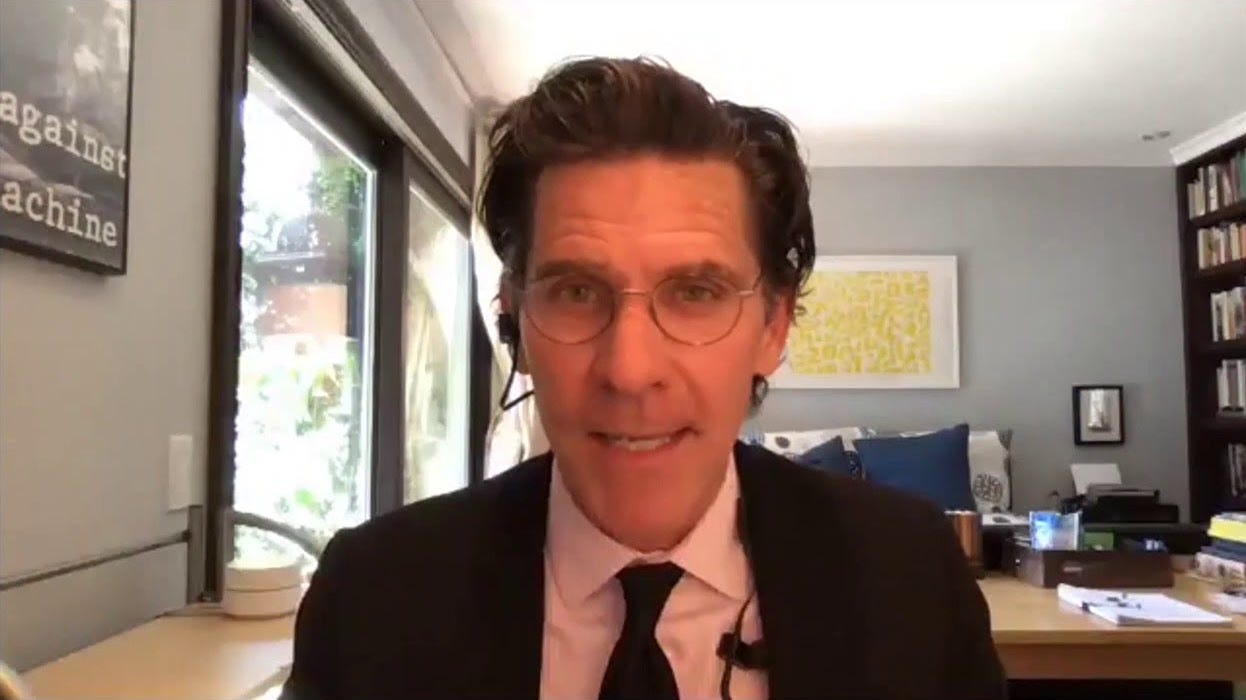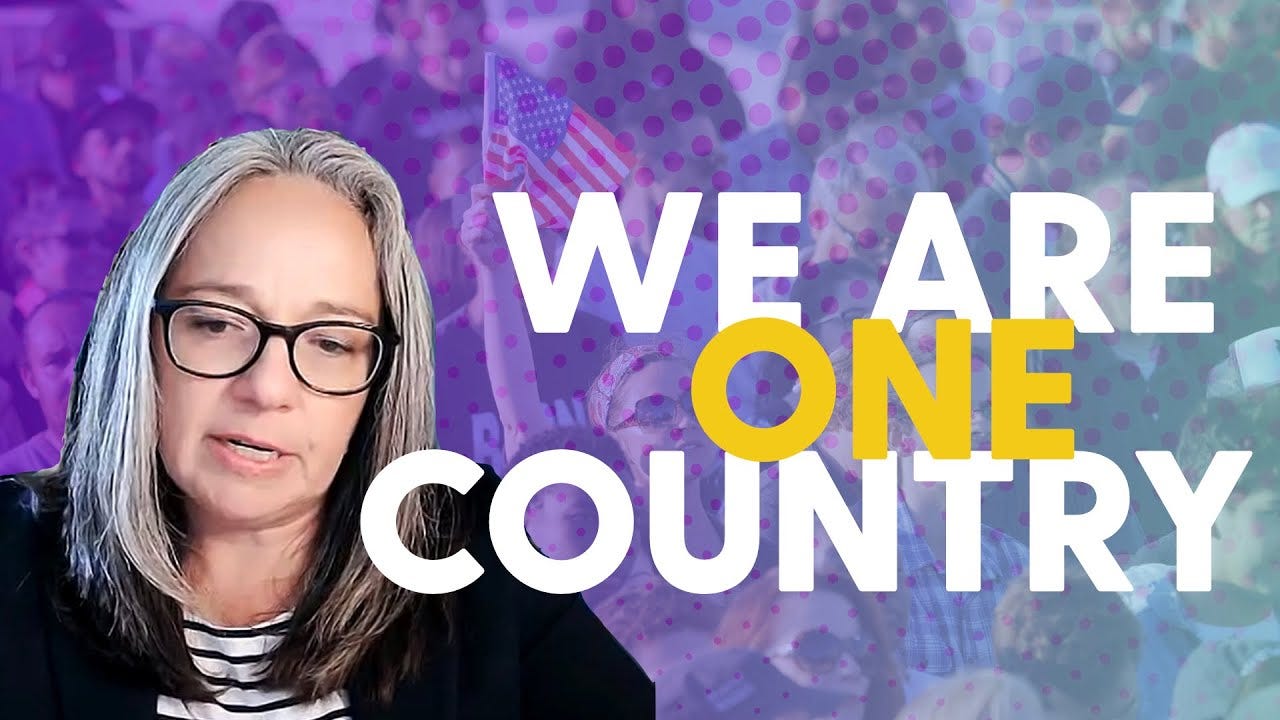Deep states
Across America, effective leaders fight for Freedom Conservatism
Although National Conservatives and Freedom Conservatives part company on many political and policy matters, one of the sharpest distinctions concerns the proper relationship of America’s local, state, and national governments.
NatCons “emphasize the idea of the nation,” as their statement of principles put it.
While endorsing “the federalist principle” so as to “allow greater variation, experimentation, and freedom,” the signatories to the NatCon statement view it as instrumental, not foundational.
“In those states or subdivisions in which law and justice have been manifestly corrupted, or in which lawlessness, immorality, and dissolution reign,” they wrote, “national government must intervene energetically to restore order.”
We FreeCons see it differently. “The best way to unify a large and diverse nation like the United States,” says our statement of principles, “is to transfer as many public policy choices as possible to families and communities.”
Today, we spotlight signatories who advocate Freedom Conservatism and effective governance in states and localities across the country.
Better choices
Randy Hicks is president and CEO of the Georgia Center for Opportunity and a FreeCon signatory.
Hicks formerly served as a legislative speechwriter, associate director of Stronger Families in Seattle, and assistant to the president at Focus on the Family.
During his tenure, GCO has led successful statewide and local efforts to improve access to quality education, promote stronger families, boost public safety, and increase employment opportunities for un- and under-employed Americans in Georgia and beyond.
In the Atlanta Journal-Constitution, Hicks praises lawmakers and Gov. Brian Kemp for expanding school choice in his state. “Georgia can no longer skate by having only 34% of fourth graders showing proficiency in math and 32% in reading on the 2022 National Assessment of Educational Progress,” he wrote.
“Protecting this status quo is like asking someone to tread water with no rescue in sight. It’s the reality Georgia parents have dealt with for years while leaders have insisted that ZIP codes are the most crucial factor for determining education opportunity.”
Bringing the crazy
Will Swaim is president of the California Policy Center. A journalist for nearly three decades, he is also a FreeCon signatory.
Swaim previously launched and edited the OC Weekly in Orange County, California. He also served as editor of Watchdog.org, a national network of state-based investigative reporters. With fellow FreeCon signatory and CPC board member David Bahnsen, Swaim hosts the weekly “Radio Free California” podcast.
In a recent National Review article, he described yet another effort by progressives to replicate a failed California policy at the national level — the Biden administration’s proposed new rule on independent contractors.
The Golden State’s earlier measure, forcing the reclassification of contractors into employees, was “originally aimed at the Silicon Valley gig economy — at independent drivers that provide the backbone for such businesses as Uber, Lyft, and DoorDash,” Swaim wrote, but its underlying purpose was “enhancing union power.”
The bill “crushed tens of thousands of California business owners — those who operate as independent contractors as well as those who employ or otherwise rely on them.”
Now Biden plans to “bring the crazy to every American state.”
Shifting the window
Joe Lehman is president of the Mackinac Center for Public Policy, a former vice president for communications at the Cato Institute, and a FreeCon signatory.
A professional engineer, Lehman is also vice chair of the National Taxpayers Union and a member of the Atlas Network's Global Council of CEOs Team.
His commentaries have been carried by The New York Times, The Wall Street Journal, The Washington Post, BBC World Service, National Public Radio, National Review, Wired magazine, and every daily newspaper in Michigan.
Last year, Lehman related the origin of the Overton Window, the often-cited concept developed by a Mackinac Center colleague, the late Joe Overton.
“The Overton Window is a model of policy change, and Joe was the first one to articulate it to me,” he said. “In his view, ideas become policy only after they move from being unthinkable notions that cannot become law to becoming popular ideas that elected officials are eager to ratify into law. This can take days, or decades.”
Overton’s model “is now embedded in the parlance of mainstream political journalism,” Lehman concluded. “I wonder what else he might have contributed to our political discourse had he lived longer, but I am grateful to be part of his legacy.”
Beacon of hope
Carrie Conko is the Senior Vice President of State Policy Network, which serves as incubator and connector for state-focused, free-market think tanks. She is also a FreeCon signatory.
Prior to joining SPN, Carrie was senior vice president at George Mason University’s Mercatus Center, where she oversaw all aspects of communications, marketing, and outreach.
She has also worked as a media relations and business development consultant for the legal industry, director of client services for a leading supplier of intellectual property services, and events manager for the Washington National Cathedral.
Conko is one of the producers of Undivide Us, a documentary that explores how people can engage constructively with each other across the political spectrum.
“America is at a crossroads,” says Conko and her colleagues, “where politicians, news media, and social media fan the flames of toxic partisanship that have led many Americans to question whether they can trust their fellow citizens. Undivide Us stands as a beacon of hope and a call to action.”
The critically acclaimed film has won top honors at major film festivals. There are upcoming showings in Missouri, New Jersey, California, North Carolina, Colorado, Texas, Nevada, and Florida.
In the mix
• In the Daily Caller, the Commonwealth Foundation’s André Béliveau observed that Joe Biden lacks energy — and not just because of his age. “The president has yet to produce a clear, comprehensive vision or reasonable strategy for energy development, security, or grid reliability,” he wrote. That “threatens the livelihoods of hundreds of thousands of American energy workers, the financial wellbeing of anyone who pays for utilities, the stability of our electric grid, and the security of our nation in an increasingly chaotic world.”
• In USA Today, Pope Foundation President John Hood analyzed the Left’s response to the deaths of four officers in a shootout with a violent fugitive. The officers were trying to “enforce a gun-control law with nearly universal acceptance,” he wrote, but “progressive politicians couldn’t help themselves. Rather than tailor their reactions to the facts of the case, they engaged in a robotic plug-and-play.”
• In City Journal, Judge Glock described how “Buy America” regulations inhibit the provision of health care to America’s veterans. Such rules “usually don’t boost U.S. manufacturing,” wrote Glock, director of research for the Manhattan Institute. “Instead, they result in projects that don’t get built at all or in delays that turn projects into a burden.”
• For the Kansas Policy Institute, Vance Ginn criticized taxpayer funding of sports stadiums. Such subsidies “do not significantly increase local tax revenues or long-term employment growth,” wrote Ginn, a former associate director at the White House Office of Management and Budget. “Instead, they often serve as handouts to billionaires at the expense of ordinary taxpayers.”




